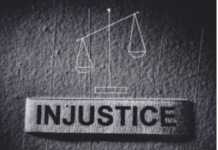Sometimes Giving a Person a Choice is an Act of Terrible Cruelty
From Aeon: We tend to believe that giving people more choices is inherently positive. However, forcing people to choose between two morally wrong options can be...
“94 Psychiatric Patients in South Africa Died of Negligence, Report Finds”
The New York Times reports on the findings of a South African government investigation that determined that "94 psychiatric patients died of negligence last year after being...
Remembering the Murder You Didn’t Commit
In this piece for The New Yorker, Rachel Aviv investigates how a psychologist and deputy sheriff convinced several suspects that they committed a murder, for which...
I Smoked Weed Three Times and Ended Up in Rehab Hell
From VICE: In her recently published memoir, The Dead Inside, Cyndy Etler tells her story of being abused and subjected to attack therapy in a teen rehab...
It’s the Coercion, Stupid!
Both Michel Foucault and Thomas Szasz dated the beginnings of a distinct Western institutional response to madness to the late 1500s-early 1600s. But while for Foucault it started in France with the creation of the public “hôpital général” for the poor insane, for Szasz it began in England with the appearance of for-profit madhouses where upper class families shut away inconvenient relatives. Regardless of their different ideas on the beginnings of anything resembling a mental health system, both authors agree that it was characterized by the coercive incarceration of a specially labeled group.
Mental Health Seclusion to be Scrapped After UN Condemnation
From Stuff: In 2015, the United Nations Committee Against Torture expressed concern at New Zealand's use of seclusion against mental health patients. According to a...
CIA Torture Psychologists Compared to Poison Gas Manufacturers
From American Civil Liberties Union: Last week, the defense attorneys of the psychologists behind the CIA's torture program, James Mitchell and John "Bruce" Jessen, compared their...
“We Need REAL Change in Mental Health Policy, Not the Illusion of Reform”
David Shern, from Johns Hopkins University, writes that the latest mental health “Murphy bill” in Congress is “an expansion of the approaches that got us into our current difficulties.” “Early intervention and prevention, assessable and patient-focused services with a rehabilitation orientation and increased funding for the community supports needed for successful recovery are the tickets to system improvement.”
Testifying in Vermont: Forced Drugs
Vermont Governor Shumlin recently suggested a change to state law that would accelerate the process under which a person could be forced to take antipsychotic drugs against her will. The House Human Services Committee reviewed this proposal and I was asked to testify. What follows are my comments.
“When the Hospital Fires the Bullet”
Reporting from Elizabeth Rosenthal at the New York Times reveals that more and more hospital guards are now carrying weapons. For patients in mental...
Justina Pelletier: The Case Continues
On March 25, Joseph Johnston, Juvenile Court Justice in Boston, Massachusetts, issued a disposition order in the case: Care and protection of Justina Pelletier. The background to the case is well-known. Justina is 15 years old. Judge Johnston did not return Justina to the care of her parents, but instead granted permanent custody to the Massachusetts Department of Children and Families (DCF), with a right to review in June. The disposition order is somewhat terse and sparing in its tone, but reading between the lines, it seems clear that the court has determined that Justina either does not have mitochondrial disease or that, even if she does have mitochondrial disease, her concern about this matter is inappropriate and excessive.
Do We Need More Hospital Beds?
In an article published by the Treatment Advocacy Center, The Shortage of Public Hospital Beds for Mentally Ill Persons, the authors (D. J. Jaffe and E. Fuller Torrey) present the idea that we have far too few hospital beds in this country, and because of that there has been a dramatic shift towards the diversion of people labeled with mental illness into prisons and homelessness. Their answer to this issue is that we should radically increase the amount of hospital beds and we should also dramatically increase our reliance on outpatient treatment in the form of mandated involuntary medication programs. As many people know here, the TAC has been highly influential politically and the authors of this paper have been instrumental in getting laws passed that mandate the outpatient use of psychiatric drugs for people who have been civilly committed.
The Psychology of Torture
“An ordinary person becomes a torturer with surprising ease. The hard part comes when it’s time to be human again,” neuroscientist Shane O’Mara writes...
A Discussion of Justina Pelletier and Boston Children’s Hospital
Justina Pelletier, who lived with her parents in Connecticut, had been diagnosed with mitochondrial disease, a rare and debilitating illness, and had been receiving treatment for this from Mark Korson, MD, Chief of Metabolism Services at Tufts Medical Center in Boston. In February of last year, Justina's parents took her to Boston Children's Hospital with flu-like symptoms. Dr. Korson had recommended an admission to Boston Children's so that Justina could be seen by Alex Flores, MD, a gastrointestinal specialist who had recently transferred from Tufts to BCH. But instead, Justina's care was taken over by the psychiatry department.
“Robert Neugeboren, Survivor of Psychiatric Abuses, Dies at 72”
Robert Neugeboren, who “spent most of his adult life in institutions, often subject to isolation, physical punishment and numbing medication,” was “a celebrity of sorts in the world of the mentally ill: a survivor of the horrors of mistreatment, a case history for those who point to the positive effects of kindness and talk therapy, and, perhaps most of all, the embodiment of the bottomless mystery of the human mind.”
App Allows You to Call Volunteers to Help the Homeless
From Healthline: A new app, Concrn, allows users to request assistance from mental health volunteers for homeless people in need. The creators of the app...
AHCA Puts Disabled People One Step Closer to Institutions
From Talk Poverty: Last week, the House passed the American Health Care Act, which would cut funding from in-home care programs and community support for seniors...
The Silence: The Legacy of Childhood Trauma
In this piece for The New Yorker, Junot Diaz reflects on the impact of his experience of childhood sexual abuse and the ways that therapy...
In the Matter of the Hospitalization of Mark V
Today, July 1, 2016, the Alaska Supreme Court issued its Opinion in In the Matter of the Hospitalization of Mark V. What strikes me the most about the case is that Mark's expressing the view that a psychiatric drug he was being required to take is poison, that it had side effects related to his sexual performance, and that it was killing him were all cited as proving Mark was delusional. As readers of this site know, these drugs can quite reasonably be characterized as poison, they do cause sexual dysfunction, and they are quite lethal to many many people, shortening lives on average by 25 years for those in the public mental health system, such as Mark.
State Sees Boom in Number of Psychiatric Beds
From The Boston Globe: Massachusetts has seen a significant increase in its number of psychiatric institutions since 2015. However, many psychiatric patients are still waiting for...
Psychiatry is a Disaster Area in Healthcare That Needs Attention
In this piece for The BMJ, Dr. Peter Gøtzsche points out several of the major problems with the drug-based paradigm of psychiatric care as well as...
The Mental Health Act Review: Everything Remains the Same
From Tales from the Madhouse: On May 1st, the Independent Review of the Mental Health Act published a 60-page interim report. The report makes it clear that no...
The Need to Address Suicide in Prisons
Rates of suicide in prison are significantly higher than in the general population.
APA to Release Guidelines for Fat-Shaming Kids for Profit
From Ravishly: The American Psychological Association has released a draft of their "Clinical Practice Guideline for the Behavioral Treatment of Obesity and Overweight in Children...
On the Link Between Psychiatric Drugs and Violence
One of psychiatry's most obvious vulnerabilities is the fact that various so-called antidepressant drugs induce homicidal and suicidal feelings and actions in some people, especially late adolescents and young adults. This fact is not in dispute, but psychiatry routinely downplays the risk, and insists that the benefits of these drugs outweigh any risks of actual violence that might exist.























